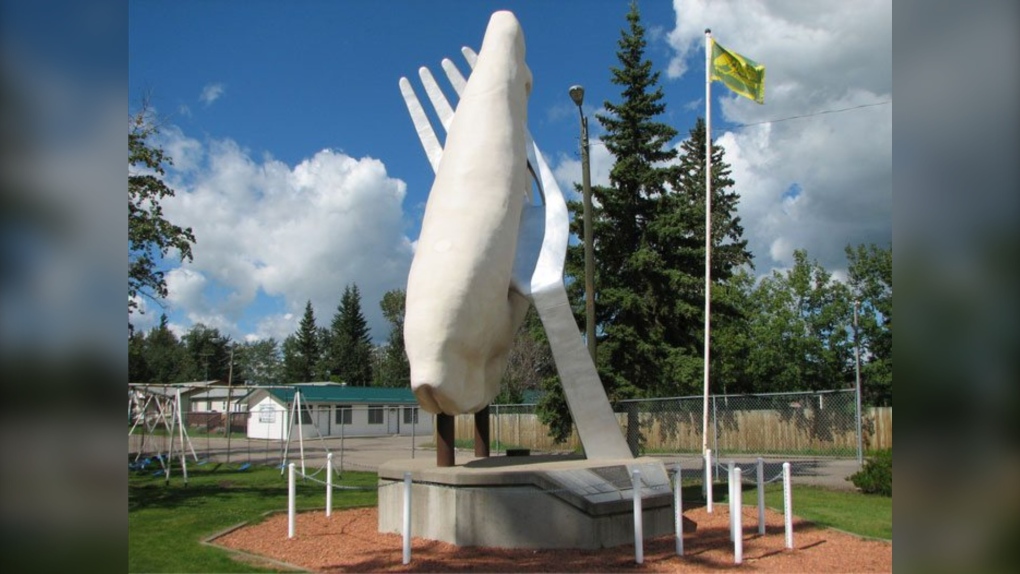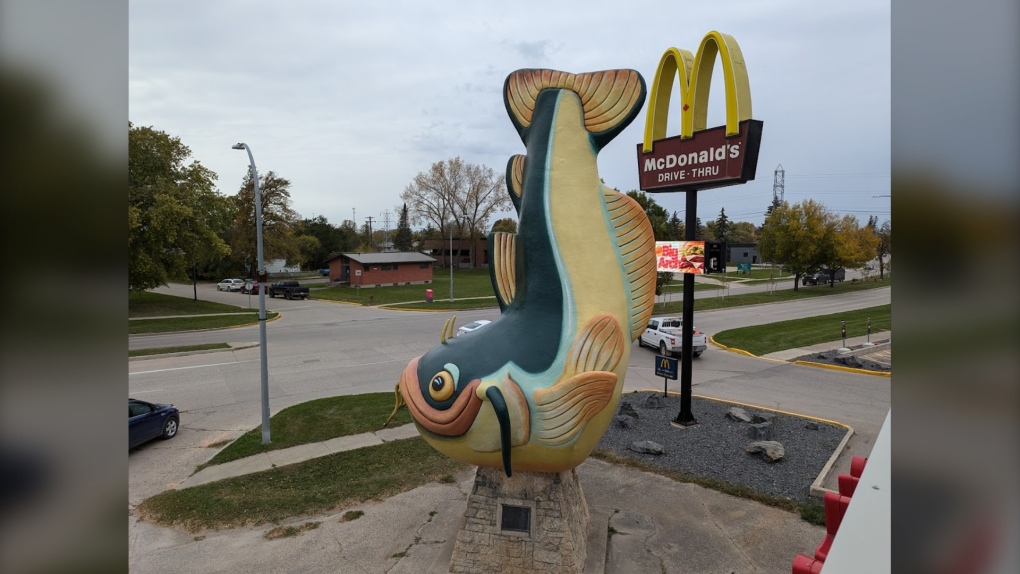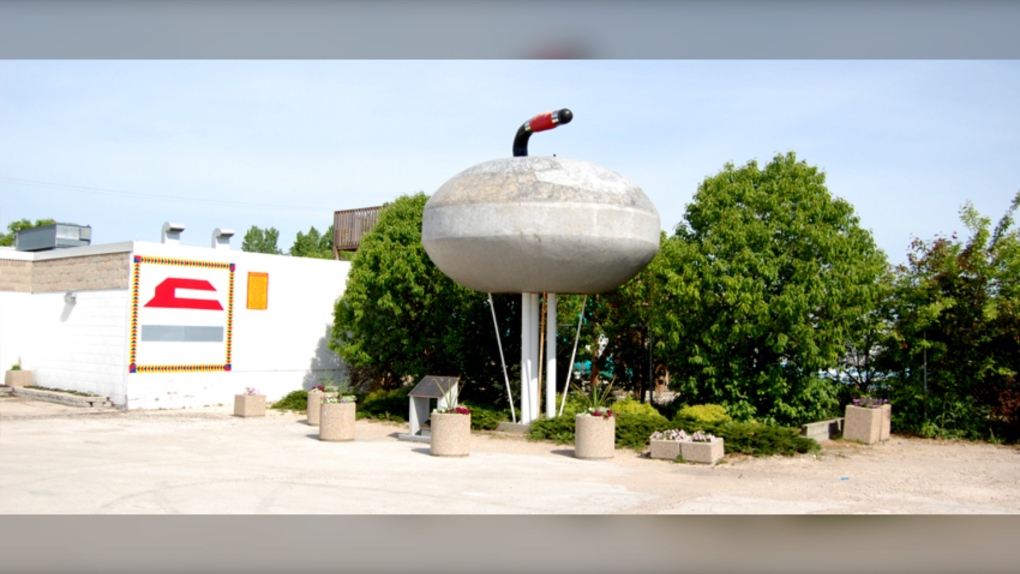The giant roadside attractions across Manitoba
It’s 1998.
Google was just born, and dial-up was the primary way to connect to the Internet. New sites were being developed daily on any number of topics, from recipes to shopping.
David Yanciw, however, was thinking big – big things, that is.
That year, the Saskatoon resident created ‘Big Things of Canada’ to catalog the large roadside attractions in towns across the Prairies. A road trip he took from Saskatoon to Edmonton inspired the site.
“A friend who lived in Edmonton mentioned the Glendon perogy on a fork, so we said we’d go take a look at that,” he said, “We also stopped in St. Paul, which has the UFO landing pad.”
The pair took more road trips together in other provinces where they looked for local “big things.”
“We weren’t in any hurry on our road trips,” he said, “So we went and looked for the ones in northwest Alberta.”
 The giant perogy in Glendon, Alberta is photographed in an undated image (BigThings.ca)The trips gave Yanciw the idea for the “Big Things” website. He taught himself HTML and hand-coding—after all, it was 1998—from a book he borrowed from the library.
The giant perogy in Glendon, Alberta is photographed in an undated image (BigThings.ca)The trips gave Yanciw the idea for the “Big Things” website. He taught himself HTML and hand-coding—after all, it was 1998—from a book he borrowed from the library.
What started as a slight mockery of the practice soon changed as he researched and visited communities, where he discovered passion, pride, and community spirit.
The site began to resonate with his newfound online audience as well.
People printed off lists of attractions for their road trips, and he connected with the artists who designed the giant monuments.
“I just created this fun website that was more for my education and entertainment,” Yanciw said, “Then I realized I became part of a community.”
 David Yanciw, creator of BigThings.ca, poses for a photo outside Happy Rock in Gladstone, Manitoba in June 2024. (David Yanciw)
David Yanciw, creator of BigThings.ca, poses for a photo outside Happy Rock in Gladstone, Manitoba in June 2024. (David Yanciw)
In Manitoba, the featured attractions include Happy Rock in Gladstone, a popular tourist site since 1993 and one of Yanciw’s favourites, which he recently visited on a road trip, and Gilbert the Golf Ball in Gilbert Plains.
“It’s a golf ball with legs, holding hockey skates and a hockey stick, having a curling tam on it – just not what you expected,” he said. “And there’s a great fun in this.”
 Gilbert the Golf Ball in Gilbert Plains, Man. (David Yanciw/BigThings.ca)
Gilbert the Golf Ball in Gilbert Plains, Man. (David Yanciw/BigThings.ca)
Selkirk is also on the site for its Chuck the Channel Cat statue, built in 1986. Named after local fisherman Chuck Norquay, the statue pays tribute to the abundant catfishing in the nearby lakes and rivers.
Duane Nichol, CAO for the City of Selkirk, said the statue has benefited the city by helping promote tourism outside of it and a sense of belonging inside of it.
“It gives people a sense of place and home, and when you see it, you just know that it’s about Selkirk,” he said.
Last month, the statue received a new coat of paint and cosmetic repairs to ensure it stays vibrant for decades.
 Chuck the Channel Cat in Selkirk, Manitoba in September 2024. (City of Selkirk)
Chuck the Channel Cat in Selkirk, Manitoba in September 2024. (City of Selkirk)
Another attraction is Arborg’s giant curling stone. It was built in 2005, years after Yanciw’s site was launched.
Tom Chwaliboga, the recreation manager with the Town of Arborg, said the statue pays tribute to the high school provincial curling champions for the 1947-48 and 1948-49 seasons.
Chwaliboga said it is a popular spot for visitors, noting he sees people taking pictures and selfies at the stone almost daily.
“At the end of the day, it’s kind of neat that people with different license plates pull into the parking lot at the rec center and make Arborg a little stop among their travels,” he said.
 The World’s Largest Curling Rock is located outside the curling rink and recreation centre in Arborg, Man. (Town of Arborg)
The World’s Largest Curling Rock is located outside the curling rink and recreation centre in Arborg, Man. (Town of Arborg)
Although Yanciw no longer owns the website, it is still live on the Internet, allowing visitors to keep learning about big attractions in Manitoba.
“That made me extremely happy because I was definitely then part of something,” he said.
View original article here Source




